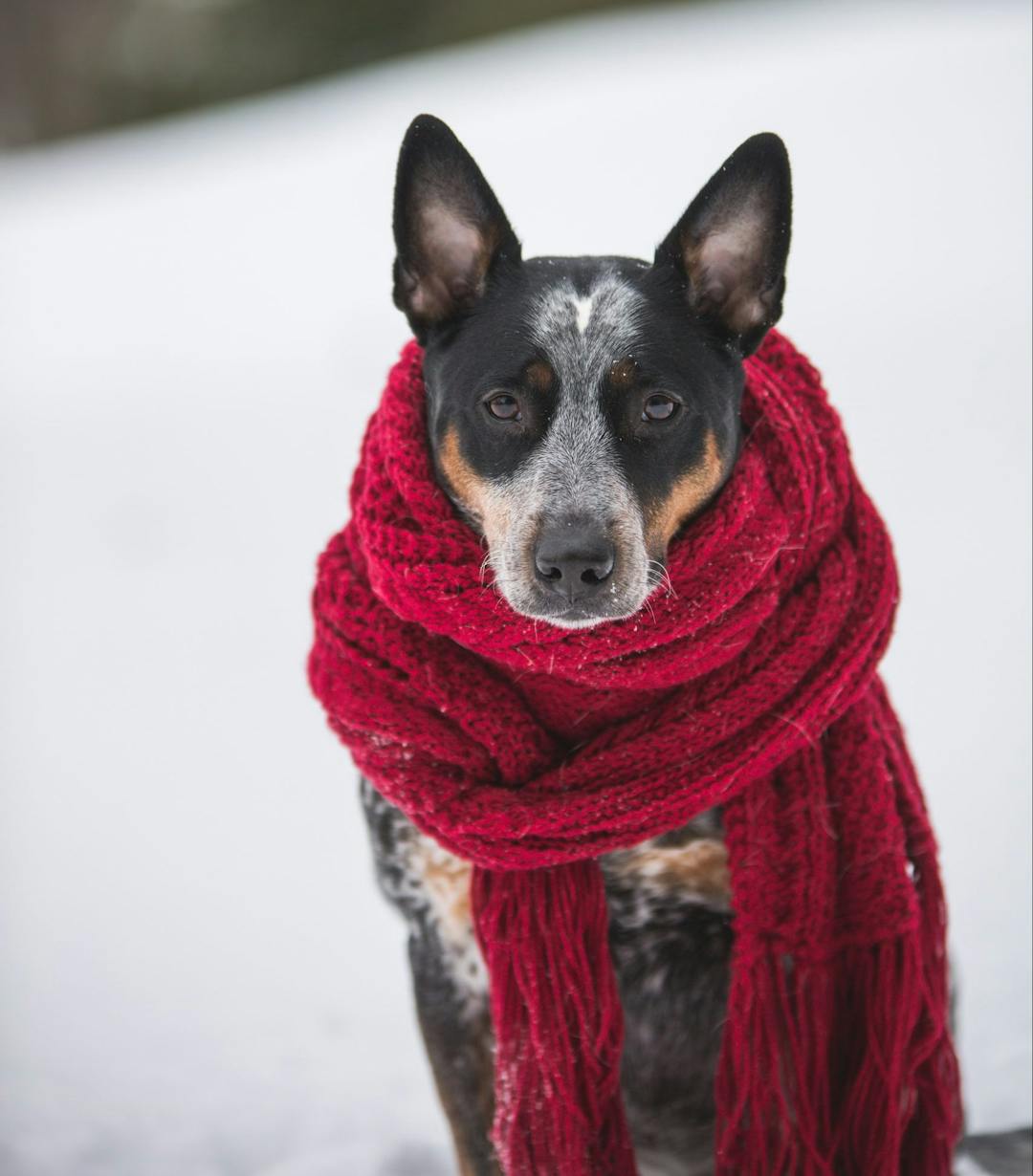Keeping warm in this cold weather is easy for us as we can layer up, put on the extra sweater or coat, or just stay inside. While battling the colder winter temperatures, don’t forget your pets!! They, too, may need some help. While it is true that most dogs and a lot of cats can adequately thermoregulate in most temperatures, smaller pets may need some help. And, when temperatures drop too low, less than 20 degrees F, even the larger dogs may need some assistance.
In relative terms, smaller breeds have a larger surface area per body weight than larger breeds, so as a result they can lose more body heat to the surrounding environment than a big dog or cat. This is exactly why many of us will recommend little “doggie sweaters” for the smaller breeds (and why you shouldn’t laugh at these little guys when you see them sporting a cute little outfit). Other tips to help protect your four-legged friends from the blistering cold are pretty much common sense. Obviously, don’t keep them outside all day and night without some form of shelter. Sometimes worse than the colder temperatures is the wind chill factor. Dogs left outside must have a place to go to be protected from the wind. If their enclosure is small, they may not be able to move around enough to generate heat, and I’ve heard of many stories from my northern, eastern, and Midwestern friends of hypothermia in even larger dogs. My recommendation is to keep pets inside overnight, either in the house or in a garage, barn, or shed. A small floor heater, placed out of harm’s way, can also do wonders. In freezing temperatures, remember that their water supply will freeze. You may want to start the day with hot to warm water, and use a bowl which doesn’t conduct and transfer the cold. Stainless steel may not be a good idea. Bowls are available that have a double chamber filled with anti-freeze (like some ice cream scoopers) which will help prevent water from freezing.
Freezing temperatures are not the only “Winter” problem. Many cities and municipalities pour salt on the sidewalks and streets to help melt the snow and minimize the inherent slippery surfaces. This salt can be very irritating to the feet of our beloved dogs and cats, so I recommend cleaning their feet after each walk to remove any residue, or, better yet, try some booties to provide the necessary protection. Oh, stop it, I hear you laughing again!!!
There’s yet another inherent winter danger which seems to have a predilection for our furry felines. This one is very serious! As we know, cats are far from stupid, in fact they are more resourceful than many of our domesticated animals. On those very cold nights, they seem to find warm places to hide. One of those warm places is under the hoods of cars on top of the warm radiator. This suits them very well, and in most cases is probably a good choice. Unfortunately, however, the warm sleeping cat doesn’t have a prayer when that car is started up early in the morning and the poor feline becomes stuck in the fan belt. The injuries are often fatal. I’ve seen this a few times and it isn’t a pretty site. This should be reason enough to keep ALL cats indoors at night!
Other potential winter-related hazards are the Holidays! Not that we don’t love them—we may even love them too much, as do our pets. Let’s face it—the festivities, the food, the decorations are all great, but we need to exercise caution around our pets. Rich foods (fatty meats, nuts, greasy foods, etc.), chocolate, raisins, grapes, candy wrappers, gift-wrapping ribbons and string, Christmas tree decorations (tinsel, balls, lights and electric cords), and many flowers and plants can all pose threats to our pets’ health. Prevention is key, so just use some common sense and good judgment to prevent any accidents before they force that trip to the emergency clinic.
As we approach our “winter” season, you need not panic, but keep in mind that our pets may need a little more attention—so please plan accordingly.
Remember, whether your normal vet clinics are closed or have limited hours, or if the weather in your area seems too harsh to get to the vet easily, get the help you need over the holidays on Airvet. Talk to a vet in seconds from the warm comfort of your own home if you ever have any questions, concerns, or issues this holiday season!
Have a great Holiday!!
Dr. Jeff





